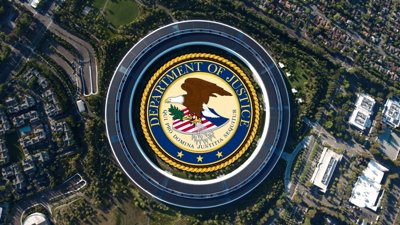The Mac maker filed a formal complaint in the U.S. District Court for the Northern District of California on July 3rd, just one day after Psystar began distributing a modified version of the Mac OS X 10.5.4 Leopard update to customers who had previously purchased one of its unauthorized Mac systems.
While details of the suit are unclear at this time, AppleInsider has learned that Apple and its counsel at Townsend and Townsend and Crew LLP filed the suit on grounds of copyright infringement.
In April, Psystar made headlines when it announced a $400 desktop dubbed OpenMac (later renamed Open Computer) which was described as "a low-cost high-performance computing platform" based on the ongoing OSX86Project — a hacker-based initiative aimed at maintaining a version of the Mac OS X operating system for everyday PCs.
A representative for the company, identified only as Robert, would later go on record and challenge Apple to bring formal charges against his firm, arguing that the Mac OS X end-user license agreement, which prohibits third-party installations of Mac OS X on non-Apple hardware, stands in violation of antitrust laws.
"What if Microsoft said you could only install Windows on Dell computers?," he said. "What if Honda said that, after you buy their car, you could only drive it on the roads they said you could?"
With Apple remaining largely silent on the matter, Psystar last month continued to taunt the Mac maker by aggressively staking its claim as the lone company outside of Apple selling Mac OS X systems, unveiling a pair of Xserve-like rackmount computers unofficially based on Mac OS X Leopard Server.
As part of its unauthorized Mac clone business, Psystar has promised to provide customers with altered versions of Mac OS X system updates for its Open Computing products shortly after Apple releases official versions for its own systems.
 Kasper Jade
Kasper Jade







 William Gallagher
William Gallagher


 Christine McKee
Christine McKee
 AppleInsider Staff
AppleInsider Staff
 Chip Loder
Chip Loder

 Malcolm Owen
Malcolm Owen







210 Comments
What took Apple so long?
What took Apple so long?
I was thinking the same thing. Perhaps Apple sees this as a very sensitive issue and wanted to make sure their approach to crushing it was brutally efficient. It will be interesting to see what kind of example they make out of these guys. I don't usually care for lawsuits, but I'm glad Apple has finally gotten around to this -- what Psystar is doing is just plain wrong.
Psystar's argument is most likely flawed. I don't believe Apple really sells it's OS as a separate product like Microsoft, but rather as an upgrade to software that is included on Apple hardware when you buy an Apple computer. If Apple loses you'd think Microsoft, Sony, and Nintendo would be guilty of not offering their XBox, PS3 or Wii OS on each other's consoles.
This makes perfect sense. Allowing clones to upgrade to newer OS versions was always going to be tricky point as Apple could introduce new checks with every new OS version. From the wording of the article it sounds as Pystar got round this issue by modifying a version of 10.5.4.
Now Apple can sue for 'selling' a modified version of the OS, that is most likely easier than sueing over selling Apple-compatible hardware.
What took Apple so long?
I think the line was drawn when Psystar modified the code for the OS update and distributed it. That seems like the most obvious violation, the proverbial camel's back-breaking straw.